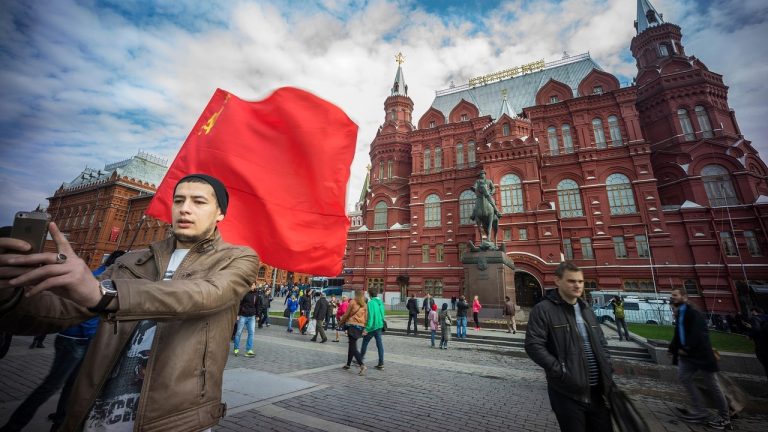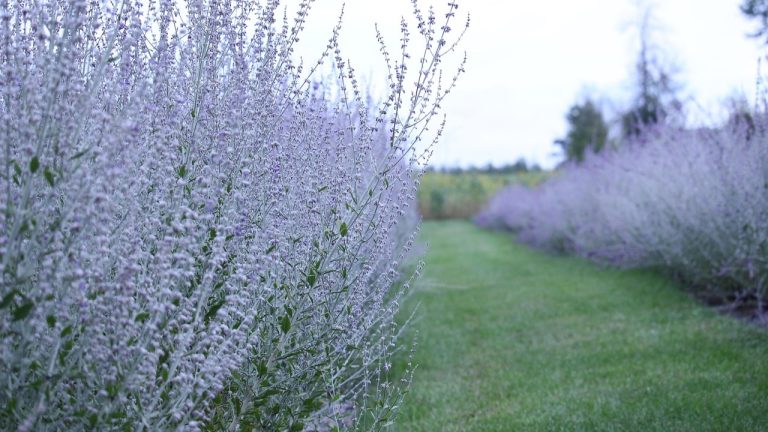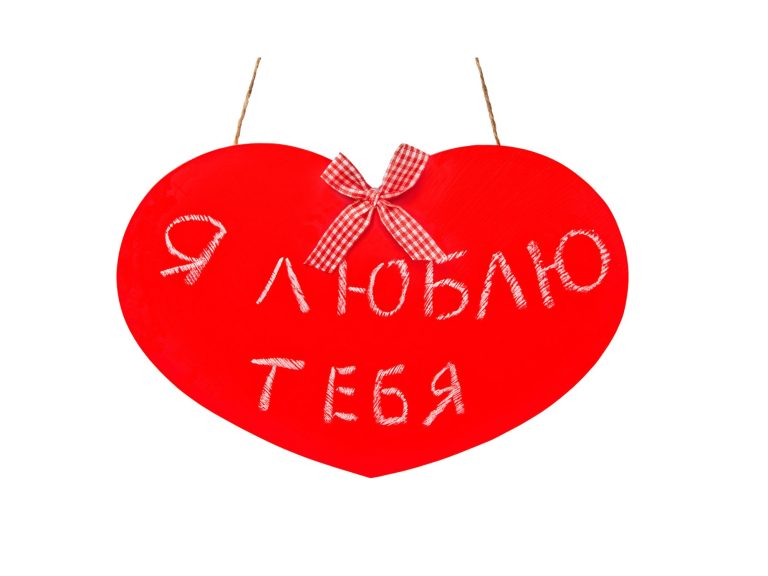Goodbyes in Russian are warm, brief, and to the point. You hear them everywhere, from Moscow to Vladivostok. Each phrase tells you about the tone and respect involved.
Begin with do svidaniya (до свидания; “duh svee-dah-nee-ye”). It means “till the next meeting” and is safe to use almost anywhere. Natives say it’s the best default, making it a key part of saying goodbye in Russian.
For casual moments, poka (пока; “pah-kah”) or playful poka-poka are good choices. Friends use them when leaving or on the phone. Kids learn them early.
Leaving late? Say Spokojnoj nochi (спокойной ночи; “spah-KOY-nuy noh-chee”) for a polite “good night.” It works in both formal and relaxed settings.
Small words like nu (ну), davay (давай), and ladno (ладно) add warmth. You might hear “Nu, poka,” “Davay, do svidaniya,” or “Ladno, do vstrechi.” These phrases soften the goodbye, showing the friendly side of Russian culture.
Remember, time-of-day greetings like Dobroye utro, Dobryj dyen’, and Dobryj vecher are not goodbyes. It’s polite to say pereday privet (передай привет), “send regards,” to family or friends. When in doubt, choose the formal way—use vy (вы) with strangers or superiors, and ty (ты) with close friends. With these tips, saying goodbye in Russian becomes easy and culturally correct.
Core Russian Goodbye Phrases for Every Situation
Goodbyes in Russian can be formal or casual. The most common words fit many situations. Whether you’re leaving work in Moscow or ending a call, there’s a phrase for you. Here are some practical ways to say goodbye in Russian, fitting for any time and place.
Do svidaniya: the Universal, Formal-Safe Choice
Do svidaniya (до свидания) is perfect for most places. It means “till the next meeting,” keeping things open. Use it at banks, cafes, or with new colleagues for a polite goodbye.
This phrase is a staple in Russian goodbyes. It’s suitable for emails, checkout counters, and casual chats. It offers respect without being too formal.
Poka and Poka-Poka: Casual Goodbyes With Friends and Family
Poka (пока) is a friendly “bye.” It’s great for close friends and family. Kids often say poka-poka, which is a cheerful way to say goodbye.
These phrases are perfect for texts, DMs, and quick goodbyes. If you’re in a relaxed mood, poka is the best choice.
Spokojnoj Nochi: Say Good Night When Leaving Late or Before Bed
Spokojnoj nochi (спокойной ночи) means “good night” and is a good goodbye. Use it when leaving late or ending a call before bed. It’s suitable for both friends and seniors.
Adding a name makes it warmer. Or, keep it simple. It’s a respectful goodbye that considers the time and the person.
Vsyevo Khoroshevo: “All the Best” as a Polite Send-Off
Vsyevo khoroshego (всего хорошего) is like saying “take care.” It’s polite and slightly formal, ideal after meetings or when leaving stores. You can say it alone or add do svidaniya after.
This phrase adds a personal touch without being too long. It works for both quick chats and polite farewells.
Davaj, Do Svidaniya: Interjection Plus Farewell in Colloquial Speech
In casual Russian, you might say davaj, do svidaniya (давай, до свидания). It sounds like “okay, let’s—bye,” ending conversations smoothly. Nu or ladno can also be used for a friendly touch.
These phrases are common in everyday Russian goodbyes. They keep the conversation natural, making it easy to wrap up without any trouble.
How to Say Goodbye in Russian
When you’re in a formal setting, like an office or a store, saying Do svidaniya is best. It’s polite and doesn’t sound too stiff. Adding Vsyevo khoroshego makes it even warmer and more respectful.
With friends, keep it casual. Poka is perfect for everyday use. You can also add Nu, poka or Davay, poka for a more natural feel.
At night, use Spokojnoj nochi to bid farewell. It’s great for late hours or before bed. A wave or a quick text can follow nicely.
For meetings soon, use Do skorogo or Do vstrechi. They mean “see you soon” and “until next time,” respectively. They’re great for friendly chats and messages.
Don’t use greetings like Dobroye utro for goodbyes. Stick to farewells to end conversations smoothly.
Being polite goes beyond just saying goodbye. Saying Pereday privet sem’ye—“send my best to the family”—shows you care. If you’re unsure, use vy-level formality and end with Do svidaniya to follow cultural norms.
Russian Farewell Expressions for “See You” and Timing Nuance
Russians use timing to make goodbyes friendly and flexible. They often say “see you” instead of a strict goodbye. This shows their love for warmth and ease in saying farewell.
Do Skorogo: “See You Soon” in Informal Contexts
Do skorogo is a quick way to say “see you soon.” It’s perfect for casual meetings with friends or coworkers. Saying “do skorogo” after a pause keeps the goodbye friendly, following traditional customs.
Do Vstrechi and Do Skoroj Vstrechi: “Until Next Time/Meeting”
For clearer plans, people use do vstrechi or do skoroj vstrechi. These phrases hint at a future meeting, often mentioning a place or event. They’re confident but not pushy, showing the modern side of Russian goodbyes.
When Russians Avoid Proshchay: Why “Farewell” Sounds Too Final
Proshchay is too serious for everyday use. It’s saved for dramatic moments or in literature. Lighter expressions keep the atmosphere open, fitting with Russian customs that avoid finality.
Adding Warmth: Interjections Like Nu, Ladno, and Davay Before Parting
Interjections like nu, ladno, and davay soften the goodbye. They say “it’s okay” or “see you soon” before the actual farewell. Adding a friendly phrase like “Pereday privet” makes partings kind and welcoming, capturing the heart of Russian goodbyes.
Etiquette, Customs, and Cultural Tips for Parting
Goodbyes in Russia are polite and brief. They depend on the situation. If unsure, it’s best to be a bit formal. This makes leaving smooth in many settings.
Formality Levels: Choosing Between Vy and Ty When Taking Leave
Use vy (вы) with those you don’t know well, like bosses or new friends. Say Do svidaniya to leave nicely. With close friends or family, switch to ty (ты). Use Poka or Do vstrechi then.
Being a bit formal shows respect. This is true for all ages and places in Russia.
Sending Regards: Pereday Privet as a Courteous Closing
Saying Pereday privet is a kind gesture. It means “send my regards.” Use it with phrases like “Pereday privet zhene,” “Pereday privet sem’ye.” It adds warmth without being too much.
It’s perfect for short goodbyes, in person or on the phone. It’s a friendly way to end a conversation.
Time-of-Day Phrases Are for Greetings, Not Farewells
Don’t end with greetings like Dobroye utro or Dobryj dyen’. They start conversations, not end them. At night, say Spokojnoj nochi instead.
This keeps goodbyes tidy and avoids awkward endings.
Sound Natural: Keep It Brief, Friendly, and Context-Aware
Be short and friendly. Start with a softener like Nu, Ladno, or Davay. Then say your farewell: “Ladno, Do svidaniya,” or “Davay, Poka.” Add a warm wish like Vsyevo khoroshego if it feels right.
These phrases work in many situations. They’re practical and easy to use, making goodbyes smooth.
Conclusion
Russian goodbyes depend on the tone and when you say them. Do svidaniya works well for most situations and keeps things polite. Poka and poka-poka are great for casual moments with loved ones.
Spokojnoj nochi is perfect for saying goodnight. If you’re not sure when you’ll meet again, Do skorogo and Do vstrechi are good choices. Proshchay is for more serious goodbyes, like when you won’t see someone again.
Adding small touches makes your speech sound more natural. Using phrases like Nu, Ladno, and Davay can help set the mood. Remember, time-of-day greetings are for hello, not goodbye.
For everyday conversations, keep it simple and friendly. Use Do svidaniya at work, Poka with friends, and Spokojnoj nochi at night. For plans later, choose Do skorogo or Do vstrechi. Avoid Proshchay unless it’s a real goodbye.
Start with formal phrases and adjust based on the situation. Speak clearly and add a soft phrase. Let your body language speak too. Mastering these goodbyes makes saying goodbye easy and polite.
FAQ
What Is the Safest, Most Universal Way To Say Goodbye in Russian?
Do svidaniya (до свидания; “till the next meeting”) is perfect for many places. It’s formal and works well with Vsyevo khoroshego (“all the best”).
How Do I Say Goodbye Casually to Friends or Family?
Say Poka (пока; “bye”) for a casual goodbye. For a warmer goodbye, say poka-poka, like “bye-bye”. Adding Nu, poka or Ladno, poka makes it friendly.
What’s a Polite Alternative Like “Take Care” in Russian?
Vsyevo khoroshego (всего хорошего; “all the best”) is a polite choice. It can be used alone or with Do svidaniya for a courteous goodbye in various settings.
How To Say “See You Soon” Without Sounding Too Formal?
Do skorogo (до скорого) is a casual “see you soon”. For clearer plans, use Do vstrechi (до встречи; “until next time”) or Do skoroj vstrechi (до скорой встречи; “see you soon”).
How Do Russians Politely Send Regards When Saying Goodbye?
Say Pereday privet (передай привет; “send my regards”). Add who it’s for: Pereday privet sem’ye (“to the family”) or Pereday privet kollegam (“to your colleagues”). It shows you care.
Are Time-Of-Day Phrases Used to Say Goodbye?
No. Dobroye utro, Dobryj dyen’, and Dobryj vecher are greetings, not goodbyes. Say Do svidaniya, Poka, or Spokojnoj nochi at night to avoid awkward goodbyes.
What Are the Best Ways To Sound Natural When Bidding Farewell in Russian?
Keep it short and consider the situation. Add a softener like Nu, Ladno, or Davay. Then say Nu, poka; Davay, do vstrechi; or Do svidaniya, vsyevo khoroshego. At night, use Spokojnoj nochi.
What Are Some Common Russian Farewell Expressions I Can Rely On?
Key expressions include Do svidaniya, Poka, Spokojnoj nochi, Vsyevo khoroshego, Do skorogo, and Do vstrechi. These cover most situations and show good Russian goodbye etiquette.






